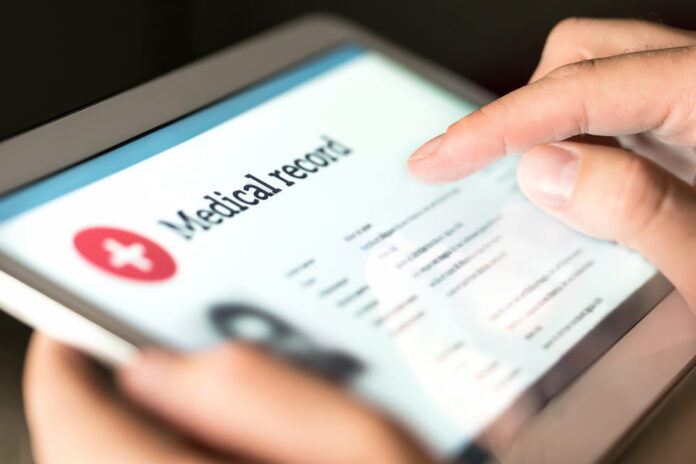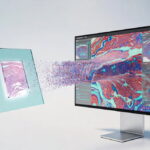With increased digitalization, the medical field has undergone various advancements to improve healthcare. One of these advancements is the introduction of measurement-based care.
Measurement-based care has allowed patients and professionals to connect remotely. That means patients can access help anytime from anywhere. This has been a very effective treatment for behavioral health.
That said, there’s more. This article first introduces the concept of measurement-based care. It then further looks at why it’s a critical strategy in healthcare. It’s among the things you can adopt to offer the best treatment options.
What Is Measurement-Based Care
Measurement-based care is the process of using data collected from patients’ treatment journeys to make better treatment decisions. The most used medical data is about symptom rating scales, which are used to figure out a patient’s condition and how various healthcare services would impact the patient.
Using measurement-based care, you can track a patient’s progress, whether they’re responding positively or negatively to their treatment. Therefore, with this information, you’ll be in a better place to provide attentive and objective treatment.
There are various types of symptom rating scales. For instance, there are patient-rated scales as well as clinician-rated sales. These scales’ quality is determined using practicability, objectivity, validity, reliability, and many more.
Despite the numerous benefits of measurement-based care, only few companies like NeuroFlow Platform have adopted or promoted it so far. If you’re among those who are yet to understand its role in healthcare, you’re in the right place. The information below talks about the importance of measurement-based care in healthcare.
The Importance Of Measurement-Based Care In Healthcare
Here are some reasons why measurement-based care is important in healthcare:
It Offers The Needed Information
Despite giving your patients the most appropriate treatment options, the results or progress of your patients may not be pleasing. Instead of getting better, your patient’s health may continue to deteriorate. Sometimes, you may be unsure of the cause. Thanks to measurement-based care, you can get real-time feedback from your patients.
With this feedback, you’ll make more informed decisions, such as the medication changes that need to be done. Also, you can use this information to make the appropriate referrals and interventions for your patients.
It Fosters A Better Relationship With Patients

Since measurement-based care involves getting feedback from your patients, you’ll have more engagements with them. These engagements foster a better clinician-patient relationship. With such relationships, your patients will trust you more and your treatment options. As a result, your patients won’t have a reason for holding back, and this can help quicken their recovery. After all, who’d want to have their health in the hands of people they don’t trust?
It Saves Time
Time is one of the most essential things in healthcare. A slight delay could result in lost opportunities or worse conditions. Therefore, it’s only right that you find time-saving treatment options.
As mentioned before, measurement-based care saves time in several ways. For starters, it facilitates remote therapy. The time a spiralling patient would have spent to get to the hospital is saved. They access help as fast as possible, preventing the situation from worsening.
Secondly, you won’t spend much time on determining the areas you need to focus on since measurement-based care uses patients’ accurate data. As a result, you can maintain your patient’s health while finding the time to attend to other patients or matters.
You’ll Have Additional Legal Protection
Unfortunately, as much as you care for your patients’ well-being, your treatment options may have severe side effects. In such incidents, some patients may opt to press charges against you. Legal charges are serious, as you may lose your job and get your practicing license revoked.
Having additional legal protection would be the best solution to avoid such consequences and prove your actions’ innocence. The good news is you can use measurement-based care to prove that your treatment decisions were based on your patient’s data.
It Can Be Used To Improve A Healthcare Organization’s Performance

Similar to other industries, health organizations also have ranks. Some health facilities are ranked among the best, while some aren’t ranked as the best performing. A healthcare organization is ranked using its data. The data used in the assessment includes service quality and its impact on its patients. With measurement-based care, your organization can prove how it’s impacted its patients. For instance, you can use the data as evidence that you’ve been providing objective treatment options to your patients.
Apart from ranking health organizations, the results from the assessment can also be used when making funding decisions, deciding on the additional programs that can be used to improve clients’ care, and offering additional quality-of-care management.
That said, all health practitioners need to use measurement-based care for their organization to use the data for performance assessment.
After learning how measurement-based care helps in healthcare, you may be convinced to adopt it. Here are the steps to take for adopting measurement-based care.
Steps To Take In Adopting Measurement-Based Care

Below are steps that can guide you when adopting measurement-based care in your organization:
1. Start By Automating The Process
Today, many processes have been automated for ease. In recording patients’ data, have an automated system such as an electronic health record (EHR). EHR involves collecting data and storing it electronically. This automation saves time and makes it easy to find a patient’s data when needed.
2. Familiarize Yourself With Symptom Rating Scales
As earlier stated, there are various types of symptom rating scales. Familiarizing yourself with these various scales to use measurement-based care effectively would be best. You can learn about what they involve and in which situations to use them.
3. Educate Staff Members And Patients
The success of measurement-based care relies on everyone involved in the treatment process. For instance, you can inform your patients of the changes you make to your practice to be on the same page. Tell them the reasons why you’re making these changes. Moreover, for your organization to be successful, you can encourage your colleagues to use the same methods by educating them on the importance of measurement-based care.
4. Consider Starting Broadly
Starting broadly, in this case, means using a rating scale with a wide range of outcome measures covering various diagnostic categories.
5. Set Goals
When you decide to do anything, you always set the target you want to achieve. The same applies when adopting measurement-based care. Set the goals you’d like to achieve along the way.
In Summary
In your medical practice, one of your goals is to offer the best healthcare to your clients. One of the ways you can achieve this is by using measurement-based care. There’s still a large number of healthcare providers who aren’t familiar with this type of care. Therefore, you don’t have to worry that you may be left behind. Be updated and use this article to educate and remind yourself on why measurement-based care has a critical role in healthcare.
Read Also
- Automated Healthcare Software Solutions: How Intelligent Platforms Are Redefining Clinical, Administrative, and Operational ExcellenceThe healthcare industry is undergoing a seismic transformation. Rising patient volumes, value-based care models, staffing shortages, and complex regulatory demands have prompted organizations to look beyond traditional tools and embrace advanced software automation. As providers search for innovative partners capable of tailoring these sophisticated systems to real-world workflows, many turn to MCSI (Managed Care Systems,… Read more: Automated Healthcare Software Solutions: How Intelligent Platforms Are Redefining Clinical, Administrative, and Operational Excellence
- Why Whole Slide Imaging Shapes the Future of Digital PathologyWhole slide imaging has become one of the most important developments in modern pathology. It changes how tissue is examined, how cases are shared and how pathologists collaborate with the wider care team. More than a technological upgrade, it represents a shift in how laboratories think about their workflow, their storage needs and the tools… Read more: Why Whole Slide Imaging Shapes the Future of Digital Pathology
- Comparing 2025 Dental Practice Management Software OptionsSoftware Key Strengths Potential Limitations Best For Dentimax • Offers both cloud-based and on-premise/server deployment. • Tight integration between imaging (e.g. X-ray sensors) and practice management, charts, treatment planning, imaging all in one. • Transparent pricing and relatively simple UI/usability; solid for small to medium general practices. • May lack some of the… Read more: Comparing 2025 Dental Practice Management Software Options
- Top Innovations in Dermatology and Skincare TechnologiesHave you ever wondered how skincare keeps getting better year after year? From fighting acne to reducing wrinkles, today’s treatments seem more advanced than ever before. The tools and techniques used by dermatologists today are smarter, safer, and more effective than those we had just a few years ago. These breakthroughs don’t just help with… Read more: Top Innovations in Dermatology and Skincare Technologies
- Telehealth and Beyond: Building a Connected Continuum of CareHealthcare is on the verge of a radical transformation. Technology no longer simply supports medicine; it actively shapes how care is delivered and experienced. Achieving a seamless continuum demands more than deploying tools—it requires intentional design, coordinated teamwork, and innovative platforms that adapt to diverse clinical and patient needs. This article explores key strategies for… Read more: Telehealth and Beyond: Building a Connected Continuum of Care
- Optimizing CT Protocols: The Hidden Key to Efficiency and Cost Savings in RadiologyIntroduction: Why CT Protocol Optimization Matters Computed Tomography (CT) is a cornerstone of modern diagnostic imaging, providing critical information across nearly every medical specialty. However, maximizing the value of CT — both clinically and financially — requires more than just advanced hardware. The real secret lies in the optimization of CT protocols. When CT protocols… Read more: Optimizing CT Protocols: The Hidden Key to Efficiency and Cost Savings in Radiology







